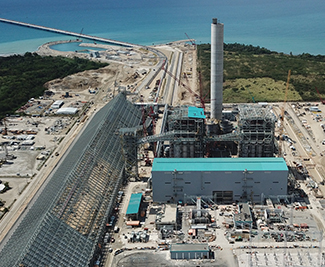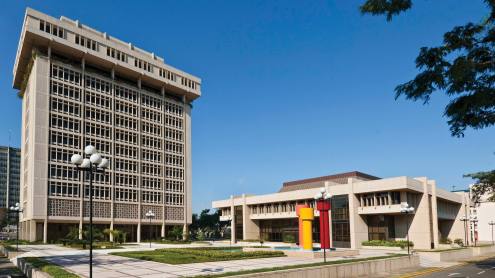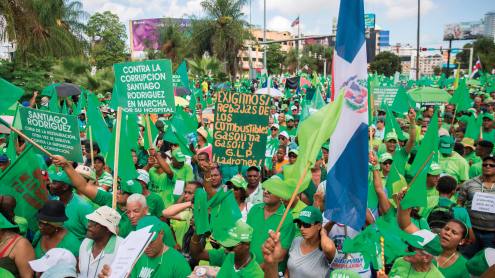Coal is not often associated with the development of capital markets, but a new power plant powered by the fossil fuel could mark a turning point for the Dominican Republic’s small exchange.
The government plans to take the $1.9bn Punta Catalina coal-fired plant public in the coming months, placing shares through the local bourse. The original plan was to float 49% of shares in the 752-megawatt plant, but the government announced in October that it was opting for 100%.
The move follows others by president Danilo Medina’s government aimed at broadening and deepening local markets, which should come into effect in 2019.
“The pace has been slow, but [the Dominican Republic is] one of the frontrunners in terms of developing a local market in the region. They have some of the best macro numbers out there,” says Andrew Stanners of UK-based Aberdeen Asset Management, an international investment group.
SME target
In late 2017, the Medina administration approved sweeping capital market legislation to increase equity and create, among other things, new vehicles for investment and more simple mechanisms for small and medium-sized companies (SMEs) to issue paper. It was the Dominican Republic’s first such overhaul in 17 years.
The legislation gave the government up to 24 months to publish 17 bylaws required for full implementation. Two bylaws, on rates and accounting, are currently in the consultation process and could be finalised by the end of 2018, with most of the rest likely to be done throughout 2019.
One of the legislative pieces market makers are waiting for is the regulation on SMEs, which will open opportunities for companies and investors. The vast majority of transactions on the bourse are in fixed income, with 90% of the action in government and central bank paper. Brokerages see openings for SMEs as a way to ramp up equity in the local market.
“We are waiting for approval of the bylaws. There is political will to get things done, but we are not going to see big growth until the implementing regulations are in place,” says Juan Manuel Barranco, head of the administrative council at brokerage Alpha Inversiones.
Mr Barranco says that creating “access for SMEs and having more people invest” are the critical issues as the legislation is implemented. Alpha Inversiones and other companies are encouraging the government to use the bylaws not only to implement the existing legislation, but also to set the groundwork for additional regulations to beef up markets.
One option would be following other Latin American countries, such as Peru, by creating a mechanism for SMEs to use factoring, allowing them to sell account receivables to a third party. “Factoring as a product for creating markets would be a big help here,” says Mr Barranco.
International encouragement
International investors are also waiting for more changes to be implemented in the Dominican Republic, saying that the new legislation should begin eliminating barriers not only to entering the market, but exiting when needed.
Besides the law, international investors are encouraged by the government’s decision early in 2018 to opt for a 40bn peso ($817m) 2023 local currency Euroclear placement. There had even been talk of a second one, but the government opted for a traditional dollar bond, of $1.3bn, in July.
Aberdeen’s Mr Stanners believes the Euroclear bond was a strong sign for investors. “Issuing this instrument opened a door to a brand new selection of investors, people who historically would not have looked at the Dominican Republic,” he says.
Mr Stanners adds that it is also beneficial in the long run for local investors because yields should drop. “International investors like us drive down the yield of this particular instrument and that forces down the yields of other bonds, so in theory it is beneficial for domestic borrowing,” he says.
Brent David, a senior portfolio manager at Bluebay in the UK, says the February issue was a step in the right direction to provide international investors easier access to the Dominican Republic market, but more is needed. “Right now, international investors have only this one bond and there have been relatively few improvements actually implemented to increase international investor participation [in] local currency,” he adds.
Mr Barranco is on the same page, saying the February bond was good but it will not have the desired impact if its stands alone. “It was important as the first issue, and it created expectations that did not exist before, that there could be international investors in pesos. However, if we have only this one issue and don’t continue down this path, the impact is not going to be very large,” he adds.












